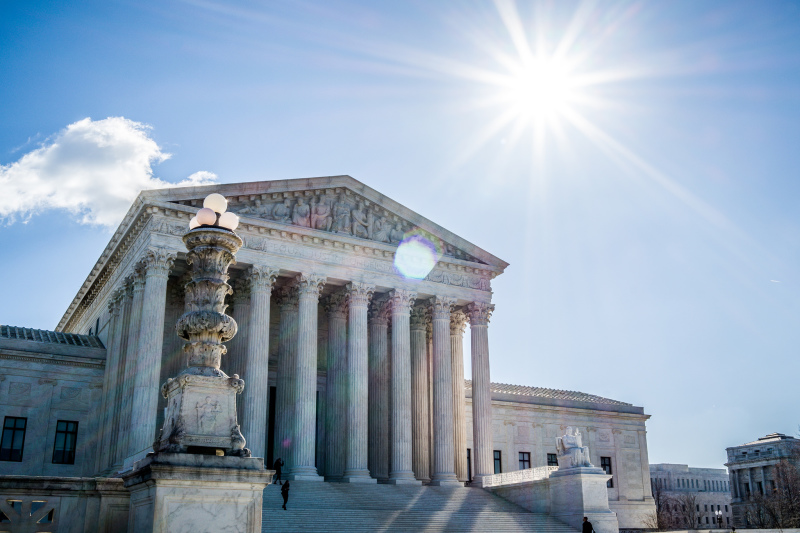
The U.S. Supreme Court sided with five churches in California, exempting them from a California ban on indoor worship gatherings allegedly intended to stem the pandemic.
The Supreme Court blocked the California county's ban on indoor worship services weeks after officials ordered places of worship to remain closed until further notice due to the pandemic even though the high court had lifted a sitewide ban on religious gatherings weeks earlier, The Christian Post reported.
The court, on Friday, ruled siding with five churches in California to allow indoor worship services to resume at 20% capacity along with shopping malls, salons, and bus terminals which were limited to 25% capacity.
This exempts religious activities from California's sitewide regulations that prohibit most indoor gatherings for activities such as political rallies, lectures, weddings, and performances.
The order went as far as calling the 9th U.S. Circuit Court of Appeals' earlier ruling which favors the county's restrictions, "erroneous."
"This outcome is clearly dictated by this court's decision in the South Bay United Pentecostal Church v. Newsom," Friday's Supreme Court order says.
In the case of the South Bay United Pentecostal Church, the justices ordered that the state could cap indoor services at 25% capacity and continue to ban singing praises and chanting.
Chief Justice John Roberts wrote his opinion on the South Bay case saying that he understands the state's arguments on how singing praises on indoor worship gatherings could heighten the risk of COVID-19 transmission, although he does not believe that the state has a scientific reason for wanting to ban in-person worship gatherings entirely when some churches are large enough to accommodate worshipers even with the social distancing protocols applied.
The county believed that its ban was legal because it imposed the same ban on large gatherings to churches as it did on other secular business establishments.
James Williams, Santa Clara County Counsel, called the Supreme Court's decision "disappointing" and said the court's order was approved "without any analysis at all of the County's gathering rules." He claimed that the county's rules "have always been neutral and applied equally to all gatherings across-the-board."
"Indoor gatherings of all kinds remain very risky, and we continue to urge all religious institutions to carefully follow the public health recommendations to avoid spread of COVID-19 among their congregations and the broader community," Williams said in a statement for Santa Clara County Public Health.
The county, however, argued in a letter they sent to the Court Thursday saying that the COVID cases are declining in the county due to their strict measures and is planning to soon lift its ban on indoor gatherings as early as March 3.
The court's decision on Friday was based on an ongoing lawsuit filed by a group of five churches in the country that are against the county's order, namely, Gateway City Church, The Spectrum Church, The Home Church, Orchard Community Church, and Trinity Bible Church.
It's also worth noting that other churches in California were affected by COVID-19 restrictions, which were obviously biased against churches. The restrictions, for example, forced churches to shut down while totally non-essential establishments such as strip clubs were allowed to remain open.
The restrictions were so biased against houses of worship that some churches even tried to convert themselves into "temporary strip clubs" just to be allowed to reopen. These churches, of course, didn't actually become strip clubs -- it was just a funny response to the restrictions.
Some church leaders were defiant of the state's draconian measures. Pastor Mike McClure of Calvary Chapel in Santa Clara, for example, said in November that he was "called to preach the Gospel" even though he faced fines of at least $350,000 and a lawsuit for holding indoor services since May 31, 2020.





























